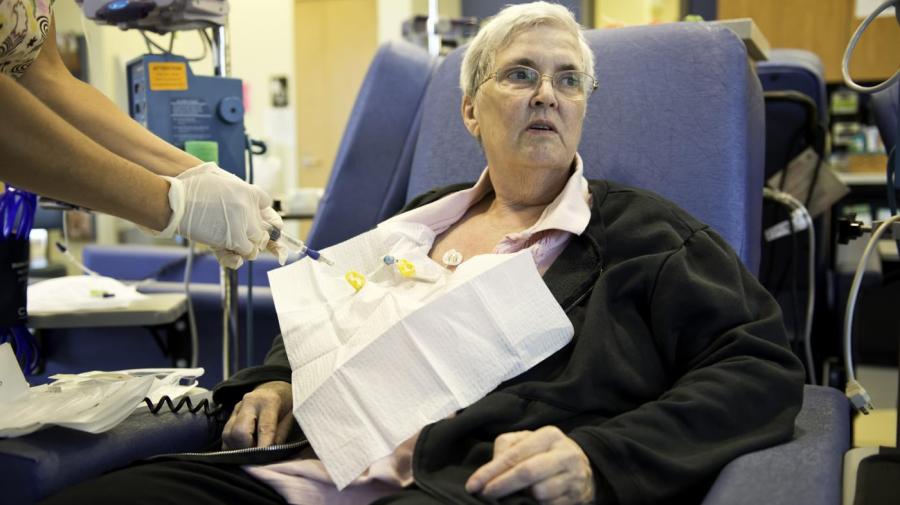What Factors Affect the Prognosis for Stage 4 Lymphoma?

Factors that affect the prognosis for stage IV lymphoma include the specific type diagnosed, daily living routine, age, the level of lactate dehydrogenase in the blood, and the extent of the disease, says Healthline. The prognosis for slow-growing lymphomas considers hemoglobin levels in the blood.
There are several types of lymphoma, with a primary distinction being made between Hodgkin lymphoma and non-Hodgkin lymphoma, or NHL, explains Healthline. This initial distinction means that stage IV Hodgkin lymphoma and stage IV NHL describe different conditions, and therefore may involve different prognoses. There are roughly 60 further subdivisions of NHL, initially divided into two categories: T-cell and B-cell. The majority of lymphoma patients have the B-cell type. All of the subgroups of NHL are further characterized as indolent or aggressive, according to how fast the cancer spreads.
Many of the symptoms for both NHL and Hodgkin lymphoma are similar, including weight loss, fevers, increasing fatigue, itching and night sweats, according to Healthline. When lymphomas press on the superior vena cava or the trachea, they cause shortness of breath, coughing and chest pain. Lymphomas in the abdominal area cause loss of appetite, vomiting, nausea, constipation and abdominal swelling. Treatments for both NHL and Hodgkin lymphoma involve various chemotherapy regimens, and a stem cell transplant may be considered for Hodgkin lymphoma that doesn’t respond to chemotherapy.





